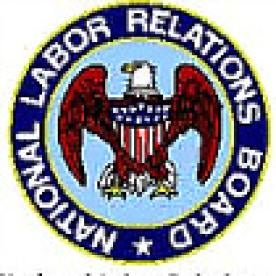-
National Labor Relations Board (NLRB) General Counsel Peter Robb urges the Board to return to its traditional joint-employer standard. In a brief filed with the U.S. Court of Appeals for the D.C. Circuit on April 17 and released on April 29, Robb stated his belief that the Court exceeded its authority in December 2018, when it directed the Board to fashion a joint-employer test consistent with common law joint-employment principles. Robb interpreted that direction as restricting the Board’s ability to reverse its employee-friendly Browning-Ferris Industries, 362 NLRB No. 186 (2015), joint-employer standard, a standard that Robb has criticized in the past. Under the test favored by Robb and followed by the Board prior to Browning-Ferris, joint-employer status would be found only where two entities actually share or codetermine employees’ essential terms and conditions of employment, such as hiring, firing, discipline, supervision, and direction.
-
The NLRB found an employer violated the National Labor Relations Act (NLRA) when it failed to provide a union with financial information requested during bargaining. The employer did not violate the Act, however, when it withheld financial information requested in response to an “inability-to-pay” assertion the employer had retracted. Audio Visual Services Grp., Inc., d/b/a PSAV Presentation Svcs., 367 NLRB No. 103 (Mar. 12, 2019) (reported on in April). During contract negotiations, the employer in this case claimed an inability to afford the union’s initial wage proposal. It later stated it was not claiming “an inability to pay for lack of revenue,” but, instead, was refusing “to pay an hourly rate that would be detrimental to the business.” The union requested financial data on the employer’s general financial performance relating to the employer’s inability to pay claim. The union also requested more specific data on commissions paid and rates charged to clients relating to the employer’s claim about hourly rates. The employer refused to furnish any of the information requested. The Board found the employer was required to provide the specific data (e.g., commission data) needed to substantiate its argument about hourly rates. However, the Board found the employer lawfully withheld the general financial data, because such data is relevant only where the employer claims an inability to pay what the union is asking for, a claim the employer had retracted.
-
In a decision reversing precedent on a successor employer’s obligations, the NLRB found an employer that became the lessor of a nursing facility violated the NLRA when it failed to recognize the union representing its predecessor’s employees, but not when it unilaterally set new terms and conditions of work for those employees. Ridgewood Health Care Ctr., Inc., 367 NLRB No. 110 (Apr. 2, 2019). The Board found that the new lessor was a successor employer to its predecessor because, absent the successor’s hiring discrimination against the predecessor’s bargaining unit members, the predecessor’s bargaining unit employees would have comprised a majority of the successor’s bargaining unit. However, the Board found the new employer did not violate the Act by setting new employment conditions, such as wages, without bargaining with the union. In Galloway School Lines, 321 NLRB 1422 (1996), the Board held that where an employer refuses to hire some of its predecessor’s employees because of their union membership, the Board would require the successor employer to bargain with the union before changing terms of work, even if the employer also hired some of the predecessor’s unionized employees. Reversing Galloway and returning to its standard in Love’s Barbecue, the Board ruled that it must be “perfectly clear” that an employer discriminatorily refused to hire “all or substantially all” of a unit before it can be required to bargain over new terms and conditions of work. Applying its decision, the Board found the employer, having hired many of the predecessor’s unionized employees, had not discriminated against “substantially all” of the bargaining unit. Therefore, the employer was free to unilaterally set new terms and conditions of work.
-
In an Advice Memorandum, the Division of Advice found an employer did not violate the NLRA when it asked HR representatives, instead of front-line managers, to respond to union communications. St. Barnabas Medical Ctr., 22-CA-224139, 22-CA-224866 (Mar. 22, 2019, released Apr. 15, 2019). The employer ceased having nurse managers and supervisors respond directly to phone calls, texts, and emails from the union concerning union matters, such as grievances. It instead instructed the managers to refer such communications to the employer’s HR team for response. The Division found the changes in practice did not interfere with employees’ exercise of Section 7 rights to engage in “concerted activities” for their mutual aid and protection since, for example, union representatives still received attention to employee grievances and other matters. Assessing an unrelated allegation, the Division also found the employer did not violate the Act when it required an employee to provide a written account during an investigatory interview, although the employer previously allowed verbal accounts, because there was no evidence the change in procedure affected any employee’s Section 7 rights.
-
The #MeToo movement may be affecting organized labor. At least some unions are placing #MeToo-related demands at the forefront in contract negotiations, proposing changes to employers’ codes of conduct and demanding stronger employer disciplinary action in response to workplace sexual discrimination and abuse, according to a Law360 article. Other unions have proposed collective bargaining agreement terms that would require sexual harassment, discrimination, and retaliation claims to be submitted directly to arbitration, bypassing internal employer investigations. The article also details how some unions have revised their internal codes of conduct for union staff members to include stronger anti-harassment protections. The push by unions follows reports of a number of prominent union officials being ousted following allegations of sexual misconduct.
Top Five Labor Law Developments for April 2019
Wednesday, May 15, 2019








 i
i


